Search Images
Browse Content (p. 957)
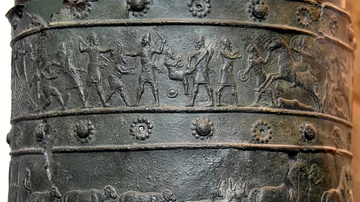
Image
Slaughter of Urartians and Tribute from Gilzani
The upper register shows slaughter of Urartians with swords and bows while the lower register shows tribute of the men of Gilzani (rams, goats and horses). Shalmaneser III's military campaign in Armenia, c. 857 BCE. Detail, bronze band from...
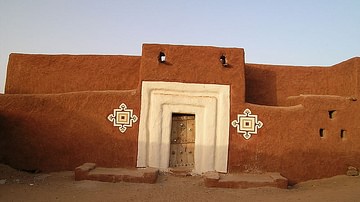
Image
Traditional House, Oualata
A traditional banco (pounded earth) house, Oualata (Walata), Mauritania.

Image
Trans-Saharan Camel Caravan
A trans-Saharan camel caravan carrying salt. Agadez to Bilma, Niger.
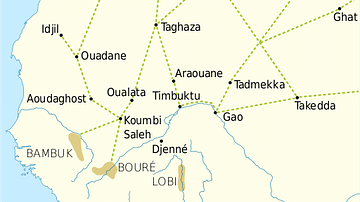
Image
Trans-Saharan Trade Routes
A map indicating the major trans-Saharan trade routes across West Africa c. 1100-1500 CE. The darker yellow areas indicate gold fields.
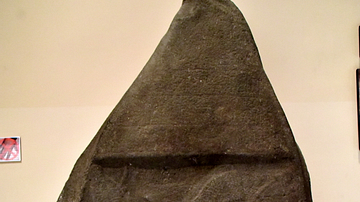
Image
Al-Balu' Stele
Al-Balu's stele is a Moabite document. This stele found in Al-Balu'a, north of Kark, in 1930 CE contains an illegible hieroglyphic inscription. There are three figures depicted on the stele, which may represent a king and two deities. It...
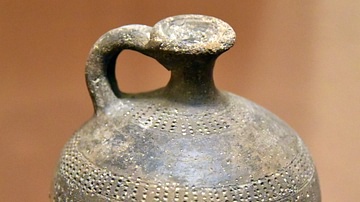
Image
Black Pottery Juglet from Jordan
These distinctive small juglets belong to the "Tell el-Yahudiyeh Ware", named after the Egyptian site where they were first discovered, although this type of ware was produced elsewhere. The juglets are of a dark color, burnished black or...
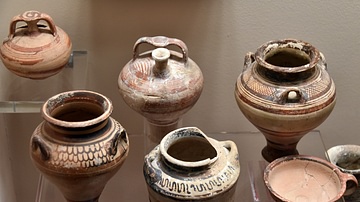
Image
Mycenaean Pottery Vessels from Jordan
The term "Mycenaean" is derived from the site of Mycenae; it refers to the culture of Greece during the Middle and Late Bronze Ages. Mycenaean imports greatly increased around 1400 BCE and were mostly stirrup vessels, pyxides, and piriform...
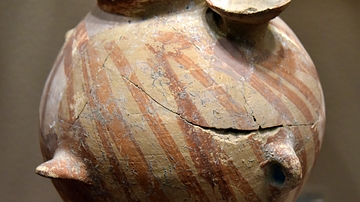
Image
Painted Pottery Jar from Arqub az-Zahr
Jar decorated in red, like a burnished slip or groups of lines The spouts applied to some jars may have served as stands for dipper juglets. Early Bronze Age, 3600-3100 BCE. From Arqub az-Zahr, Jordan. (The Jordan Museum, Amman, Jordan).
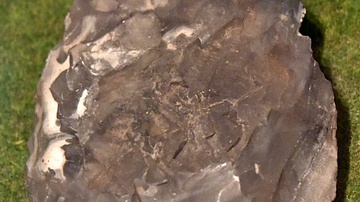
Image
Flint Cleaver from Ayn Soda
Cleavers are large hand axes with a flat chopping edge. They were used for butchering and are among the oldest known tools. Late Acheulian period, around 300,000 BCE. From Ayn Soda, Jordan. (The Jordan Museum, Amman, Jordan).

Image
Gupta Empire and Conquests
This map shows the conquests made by Gupta rulers in the 4th century CE and early 5th century CE. Of these three rulers—Chandragupta I, Samudragupta and Chandragupta II—Samudragupta’s conquests are the most important and the most extensive...